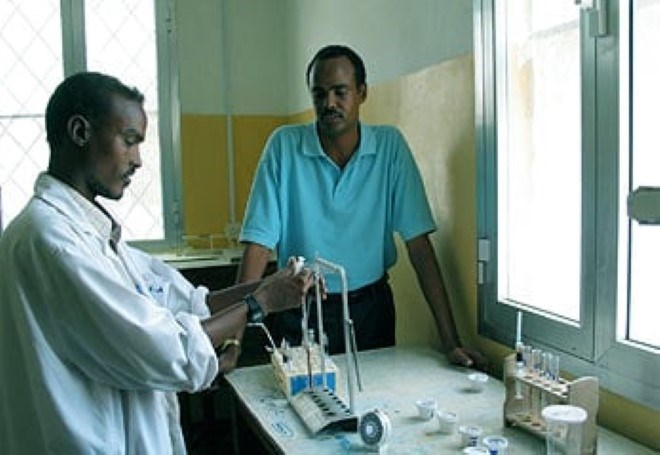
Wednesday December 1, 2021

Dr Abdinasir Mohamoud Abubakar (right) with a medical technician testing blood from blood donors at Bossaso Hospital. © UNHCR/K.McKinsey
HIV prevalence rate of infection in Somalia has been dropping over the last 14 years, the World Health Organization (WHO) said Wednesday.
Citing periodic surveys conducted, the WHO warned despite the general decline in HIV prevalence across Somalia, there are locations such as Garowe and Bosaso in Puntland in northern Somalia where the infection rates have merely levelled off, with the risk of increasing yet again.
This year’s global World AIDS Day, which fell on Wednesday, is being held under the theme “End inequalities. End AIDS.”
The WHO said findings of a 2014 survey showed that the HIV prevalence in Somalia had reduced to a level that could be classified as a low-level epidemic in all the states, while the most recent survey, conducted during 2018, showed that average antenatal HIV prevalence across the country stood at 0.1 percent for all states.
“By geographical area, it was at 0.15 percent in Somaliland, 0.17 percent in Puntland and 0.04 percent in other federal member states,” it said, adding that the next survey among pregnant women is scheduled for 2023.
“The low HIV prevalence in Somalia can be attributed to Somali culture and society, and few risk factors as a result of behaviour,” said National HIV/AIDS Programme Manager Sadia Abdisamad Abdullahi.
Given that HIV remains a major public health issue and is still a pandemic around the world, WHO is calling on global leaders and communities to rally to address the inequalities that drive AIDS and try to reach those who do not have access to essential HIV services.
It said the growing inequality, if not addressed, can only fuel and aggravate the divide between those having access to HIV testing and services and those who do not have access to testing, treatment and care.
“We must all work together to put an end to inequalities that leave Somalis out of the health service system. Decision-makers, health facilities, families and individuals all need to provide support to people living with HIV and prevent the spread of this disease,” said Malik.